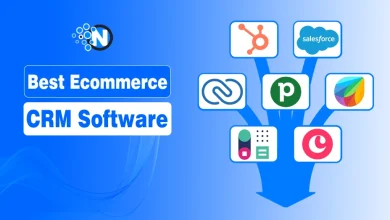Voice Search and eCommerce: Adapting to Changing Search Trends

In the ever-evolving landscape of eCommerce, staying ahead of the curve is vital for businesses seeking sustained growth. One of the latest and most impactful trends shaping the industry is the integration of voice search technology. As more and more consumers turn to their smart speakers, smartphones, and other voice-activated devices to search for products and services, businesses must adapt to this changing search landscape. In this article, we will explore the rise of voice search in eCommerce and provide actionable tips on how to optimize your eCommerce marketing strategies for voice search to drive sales and improve user experience.
The Growing Impact of Voice Search in eCommerce
Voice search technology has rapidly gained popularity, becoming an integral part of our daily lives. From asking virtual assistants for weather updates to searching for recipes hands-free, voice search has changed the way we interact with technology. In the context of eCommerce, the impact of voice search cannot be overstated.
Voice search provides a more natural and conversational interaction with eCommerce platforms. Shoppers no longer need to laboriously type out their queries. Instead, they can have a dynamic conversation with the virtual assistant, making the experience more enjoyable and user-friendly.
It is as simple as saying “Hey Google, find me a pair of shoes, or to Alexa, buy some groceries for me”. This way helps you to have multiple buying options for customers’ requirements. It assists them in navigating through different options for purchasing their concerned product.
How are People Using Voice Search in eCommerce?
To understand the significance of voice search in eCommerce, it’s essential to delve into how people are using this technology. Users are increasingly relying on voice commands to find products, compare prices, and make purchases online. Here are some common ways people are using voice search in eCommerce:
- 1. Product Searches: Consumers often use voice search to look for specific products. They might say, “Hey Google, find me the best smartphones under $500,” or “Alexa, search for running shoes with good arch support.”
- 2. Local Searches: “Where can I buy organic groceries near me?” or “Find a furniture store in [city]” are examples of voice searches aimed at finding local eCommerce options.
- 3. Price Comparisons: Shoppers use voice search to compare prices, such as asking, “What’s the price difference between the 55-inch and 65-inch LED TVs from [brand]?”
- 4. Order Tracking: Post-purchase, customers inquire about their order status with commands like, “Check the status of my order #12345.”
- 5. Product Reviews: “Find me reviews for the latest iPhone” or “Read customer feedback on this laptop model” are queries that help users make informed decisions.
Optimizing Your eCommerce Site for Voice Search
Now that we understand the relevance of voice searches in eCommerce let’s explore how you can optimize your eCommerce site to leverage this trend effectively.
Keyword Research and Integration:
Start by researching voice search keywords relevant to your products or services. Use tools like Google’s Keyword Planner to identify long-tail keywords and phrases people are likely to use in voice searches. Incorporate these naturally into your product descriptions, blog posts, and other content.
Structured Data Markup:
To provide search engines with more context about your products, it’s important to implement structured data markup (schema.org) on your eCommerce site. This helps search engines deliver more accurate results for voice queries.
Mobile Optimization:
Ensure your website is mobile-friendly, as voice searches are often performed on smartphones. Optimize your site’s design and speed for mobile users, making it easy for them to navigate and complete purchases.
Local SEO:

If you have physical stores, focus on local SEO strategies to appear in voice search results for location-based queries. Claim your Google My Business listing, keep it updated, and encourage customer reviews.
Conversational Content:
Create content that answers common voice search questions related to your industry. FAQ sections and blog posts addressing these queries can help your site rank higher in voice search results.
Voice Search-Friendly URLs:
Consider creating user-friendly URLs that are easy for voice assistants to read and understand. Short, clear URLs with relevant keywords can enhance your site’s voice search visibility.
Page Load Speed:
A fast-loading website is crucial for voice search optimization. Compress images, minimize server response times, and leverage browser caching to improve site speed.
Voice Search Analytics:
Regularly monitor voice search analytics to track user behavior and refine your optimization efforts. Tools like Google Analytics and Google Search Console provide valuable insights into voice search traffic.
Voice Search in eCommerce: Boosting Sales and Customer Satisfaction
By adapting your eCommerce strategy to embrace voice search, you not only improve your chances of being found by potential customers but also enhance the overall shopping experience. Voice search can help increase sales by simplifying the buying process, offering personalized recommendations, and improving customer engagement.
Moreover, as voice search continues to evolve, staying ahead of the curve positions your business as an industry leader. By implementing the strategies outlined above, you can ensure that your eCommerce site is optimized for voice search, leading to increased visibility, improved sales, and higher customer satisfaction.
Conclusion
Voice search is not just a passing trend; it’s a transformative force in eCommerce. To remain competitive in today’s digital landscape, businesses must embrace voice search and proactively optimize their eCommerce sites. By doing so, you can connect with a broader audience, drive sales, and secure a lasting place in the evolving world of eCommerce. Don’t wait – start optimizing for voice search today!




